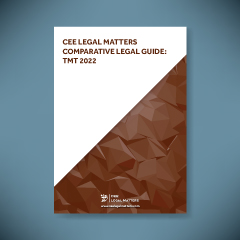Technology has been shaping the lives of humans since the dawn of humanity. Between inventing the wheel to building steam engines centuries passed, and then the discovery of electricity took a few centuries still. It’s a cliche that technological advancement has rapidly increased in the past decades and with the digital era. Our lives slowly started to expand into somewhat of a virtual extension of our physical world and in the past 10-15 years customs like sending regular mail or buying music that the older generations were used to barely exist nowadays. The way we communicate with each other also moved into the digital space. We send tweets, SMS, and instant messages rather than emails.
Digitalization brought and will bring many more benefits to human welfare and the way we deal with each other in our everyday lives. The great lockdowns from 2020 also gave a strong boost to digitalization and even “old school” brick-and-mortar shops started to move online, develop digital services and solutions, and change their business models. We used to buy things in the physical world but we now shifted to online marketplaces and shops (we can even buy cars and clothing online, no need to take long drives to crowded plazas anymore).
These changes also affect the laws that regulate how we can identify ourselves in the digital world and how can we conclude contracts that require formal attributes, like the verifiable, authentic signature of the contracting parties and securing non-repudiation of contractual statements. The way countries and jurisdictions regulate digital signatures and digital contracting can be a game changer for the digital economy, the supply chain, and international economic cooperation. Bad or lacking regulation can lead to actual economic detriments by keeping the costs of conducting business higher than in jurisdictions with more well-formulated, well-thought regulations.
As we leave paper documents behind, archiving digital assets becomes more and more important. Digital archiving is not just about archiving digital information, but also the means to (even decades) later be able to retrieve such information. This also requires the archiving of software, sometimes even – now deprecated – dedicated hardware.
This CEE Legal Matters comparative guide collects and showcases the most important regulations relative to online contracting, digital signatures, and digital archiving for the reader to get a high-level, comprehensive picture of the legal landscape of these critical aspects in the region.






